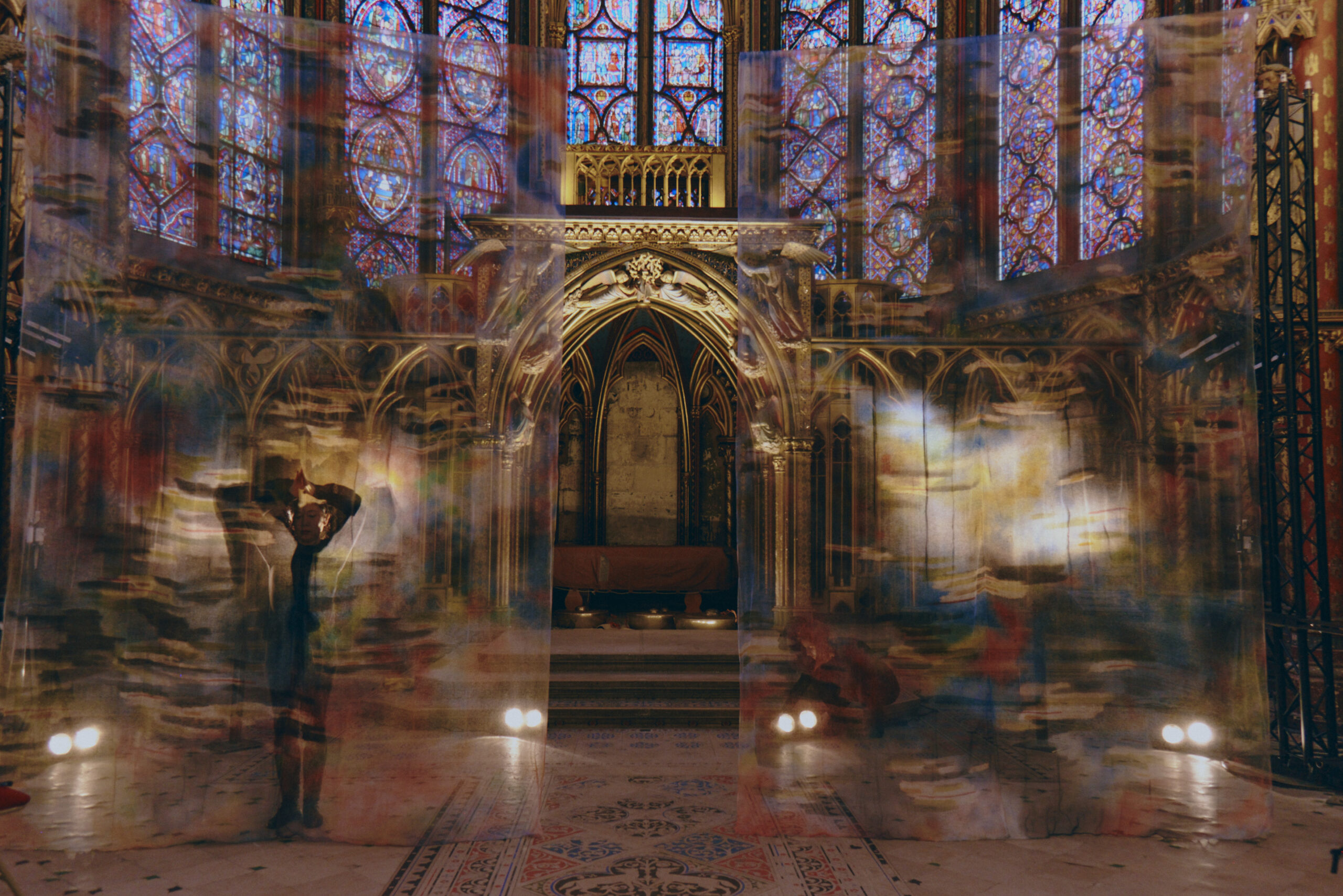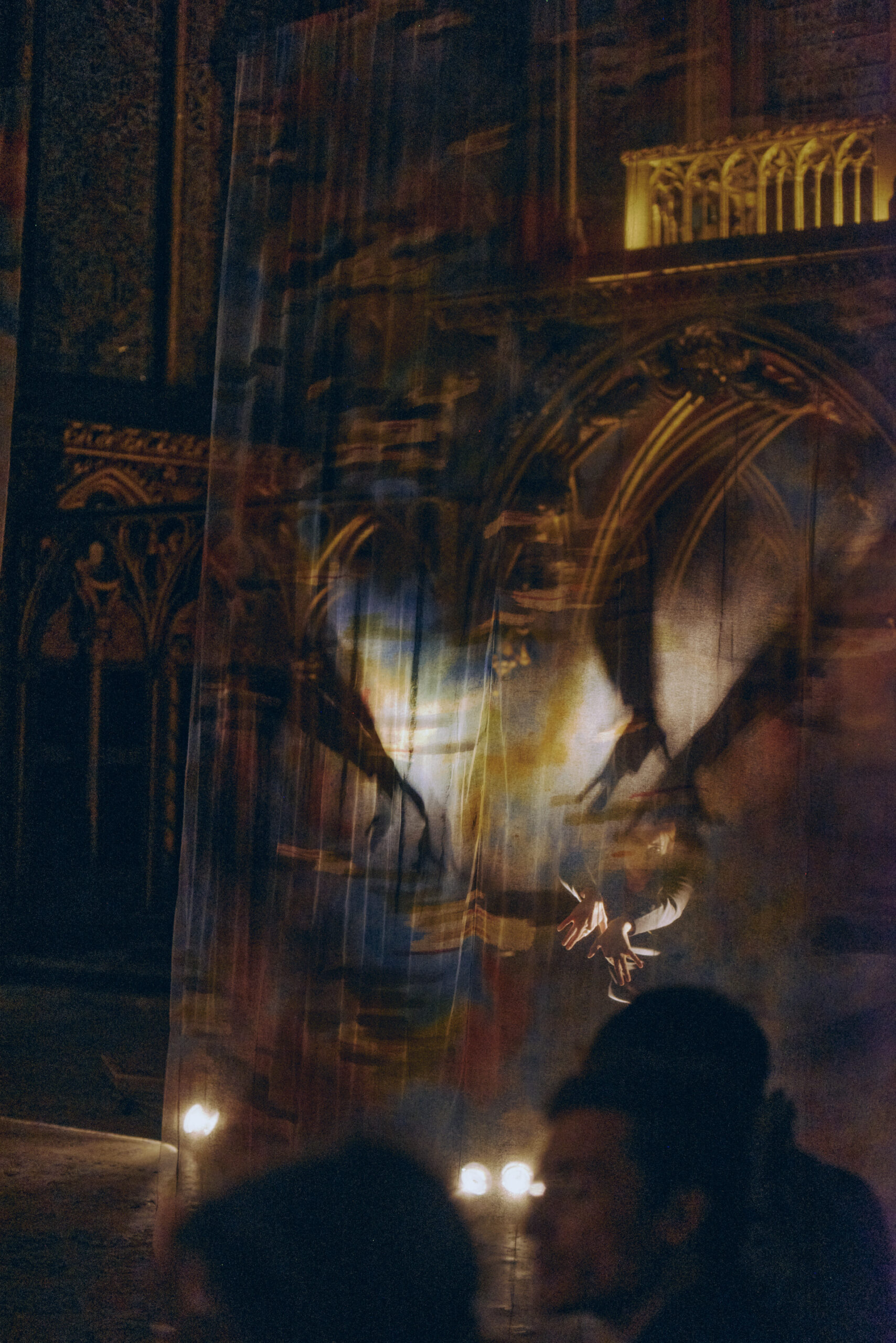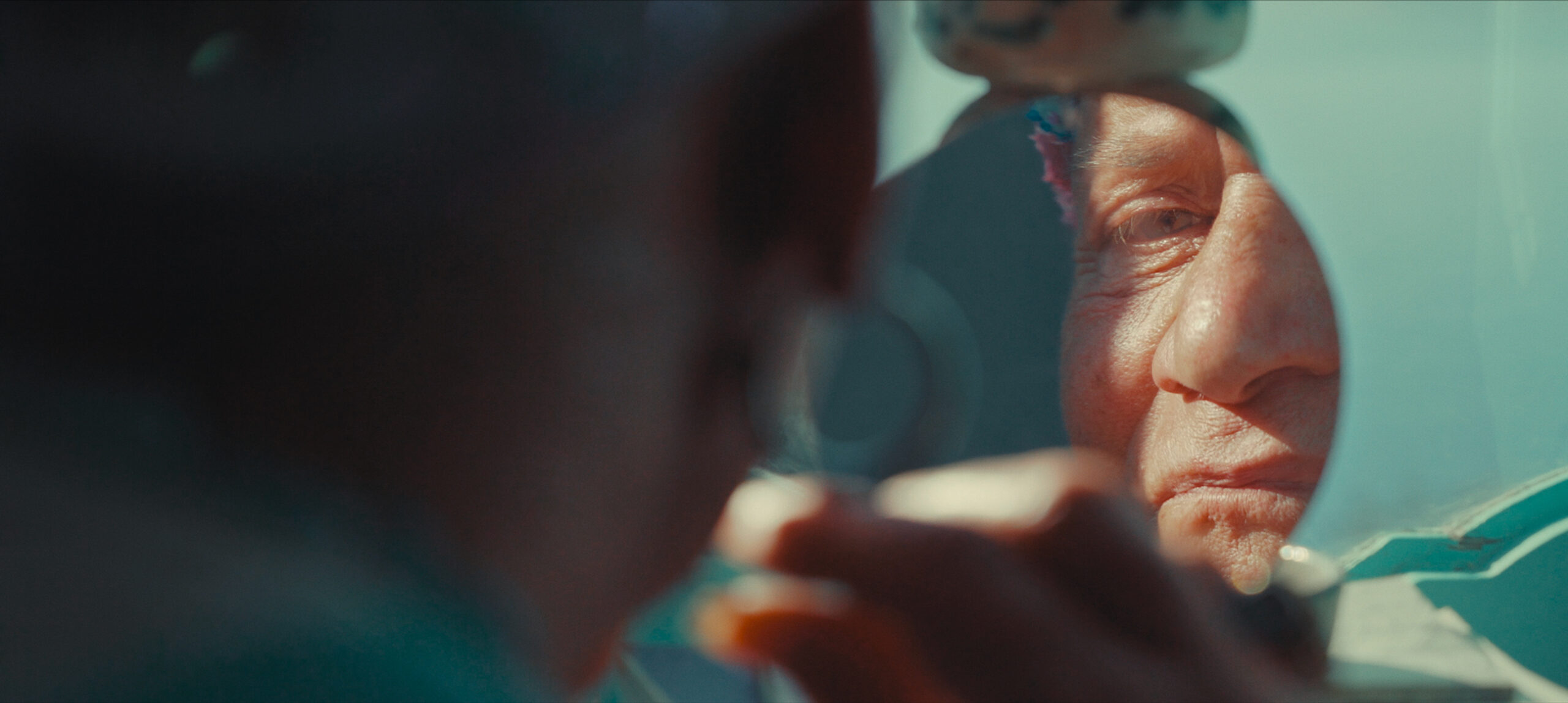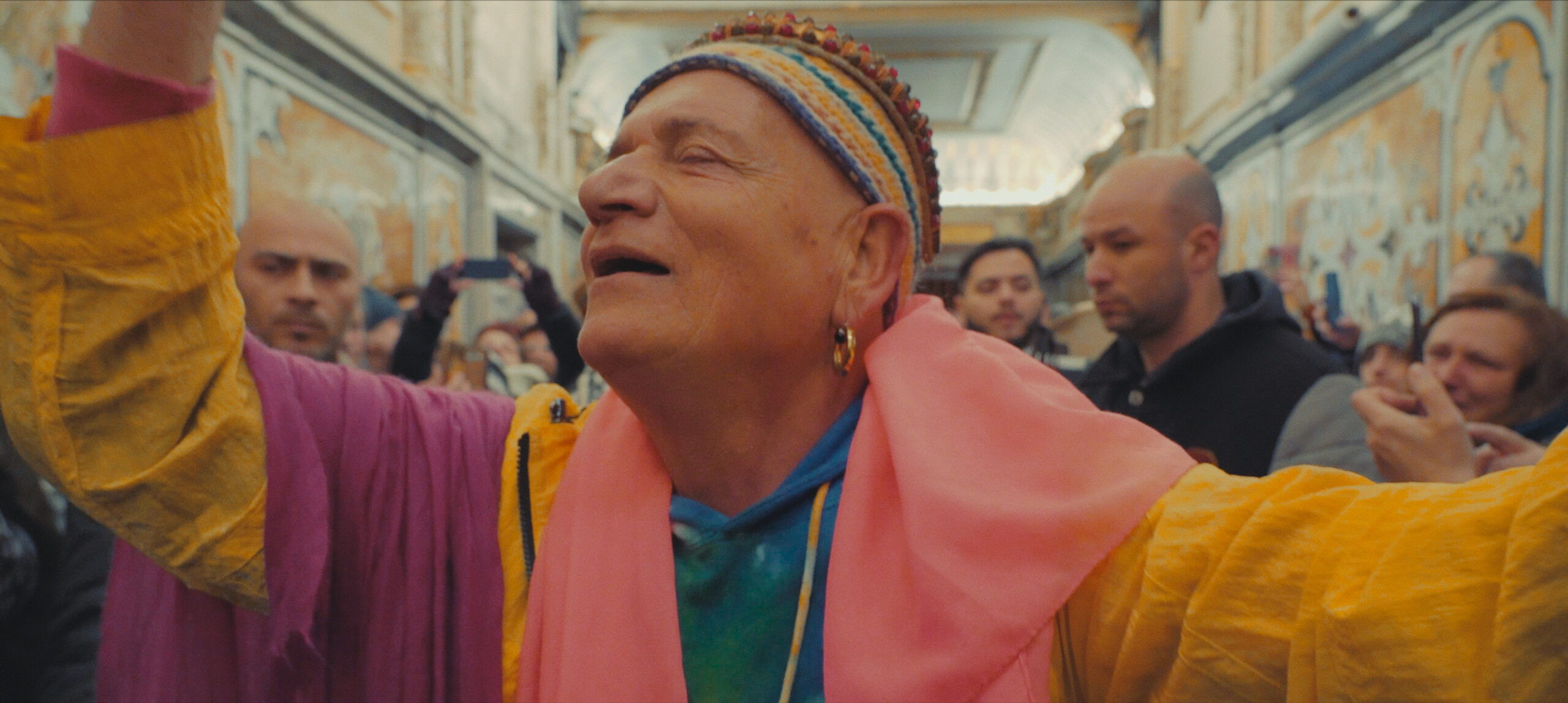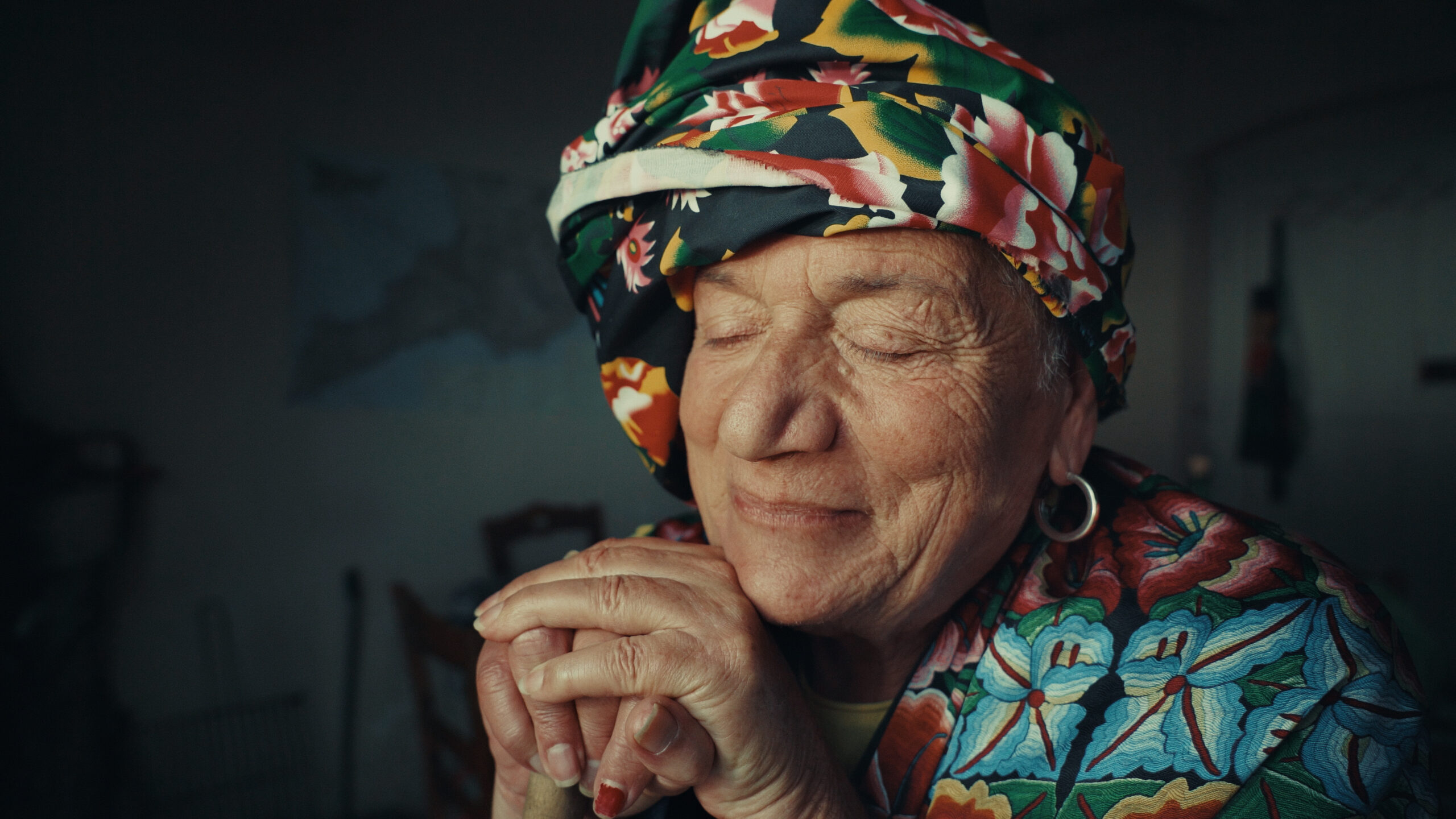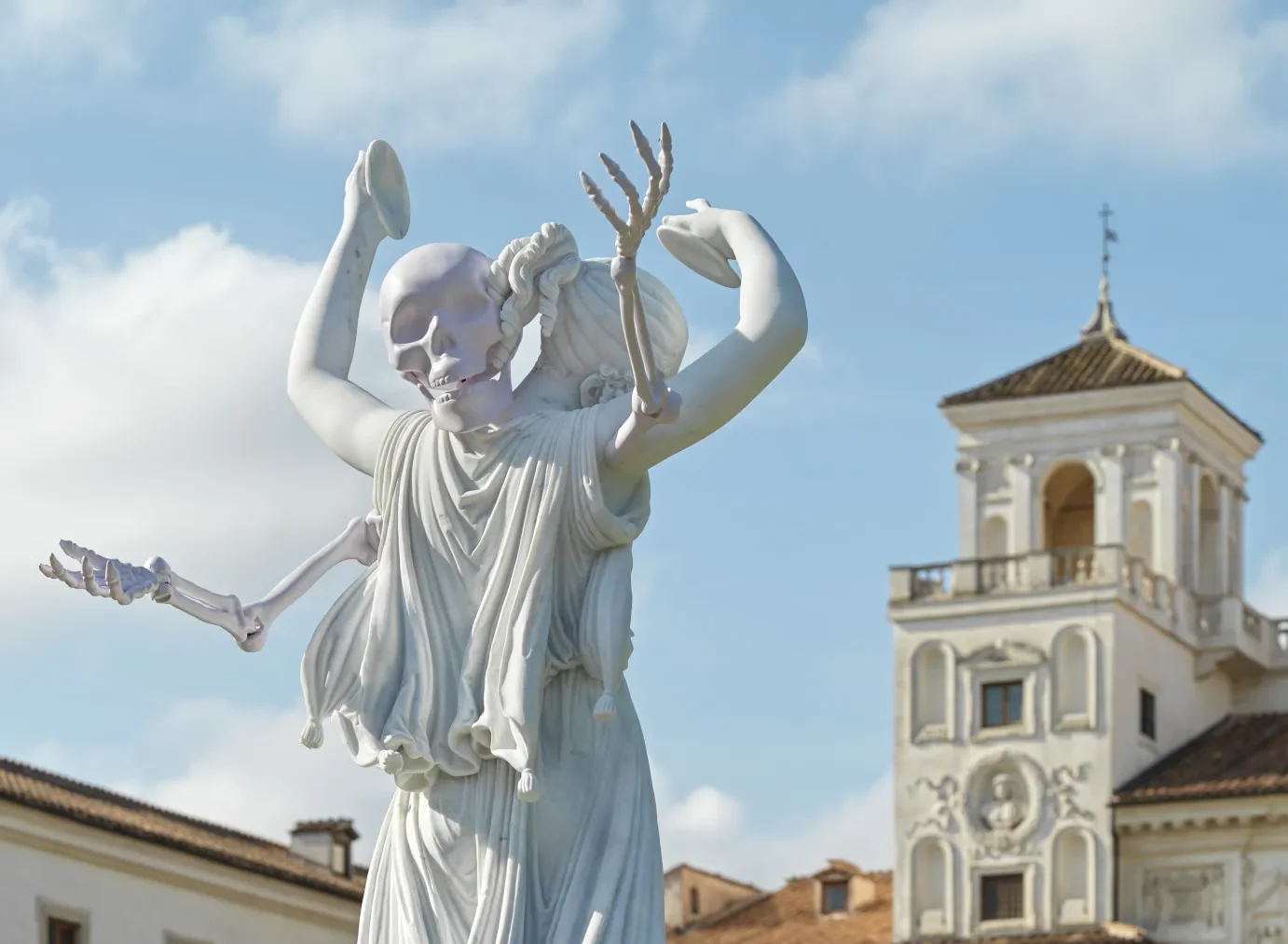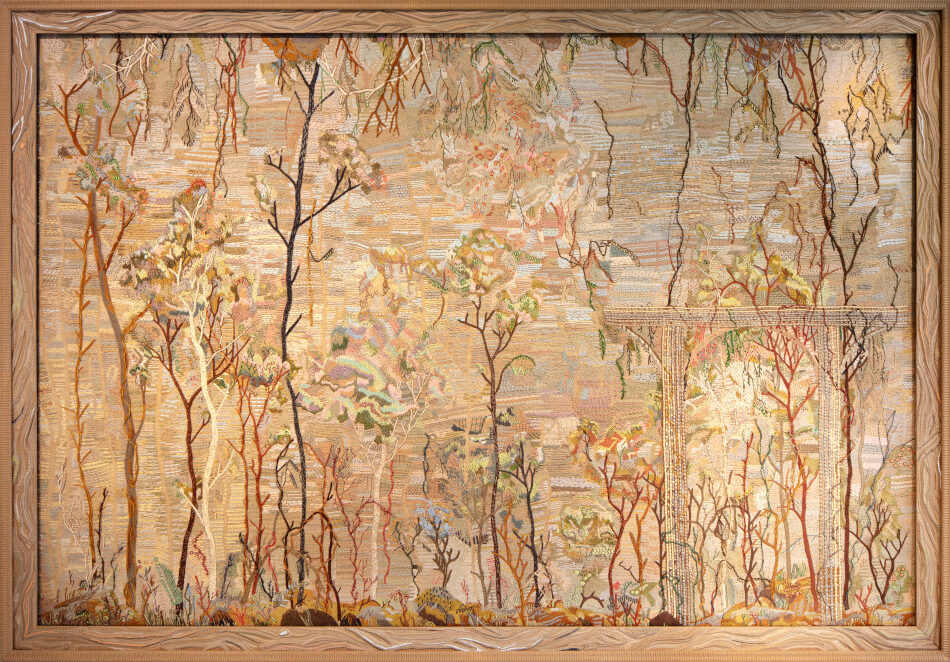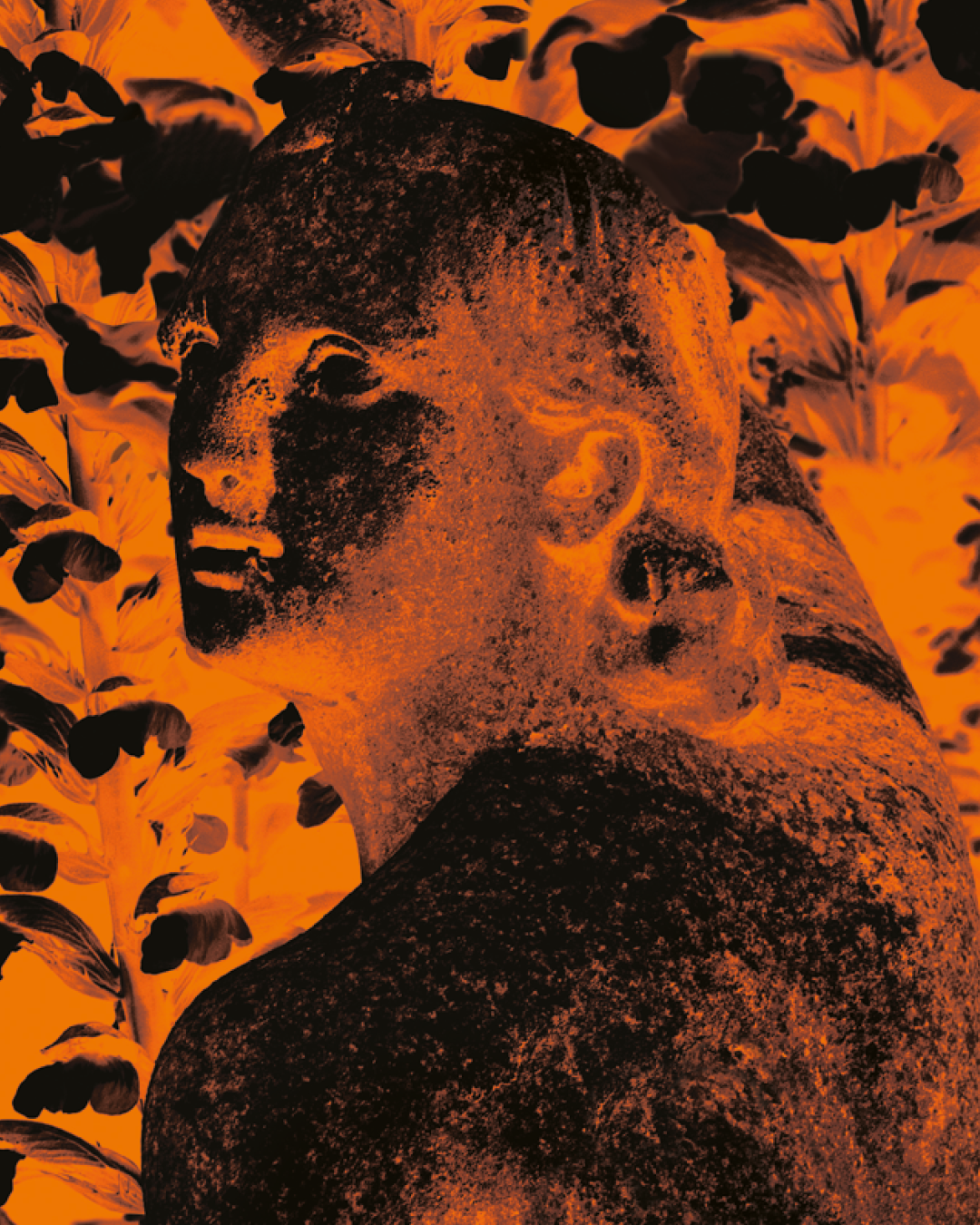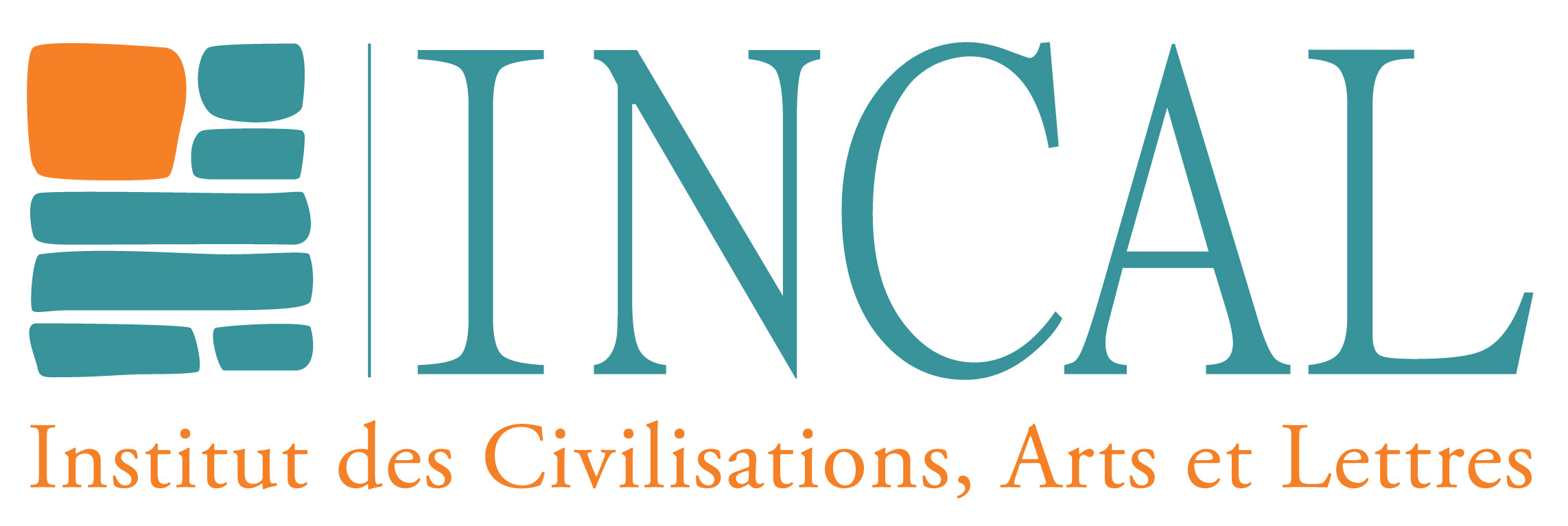Search
Translatio
Hybridizing the Christian story
13.11 - 14.11.2025
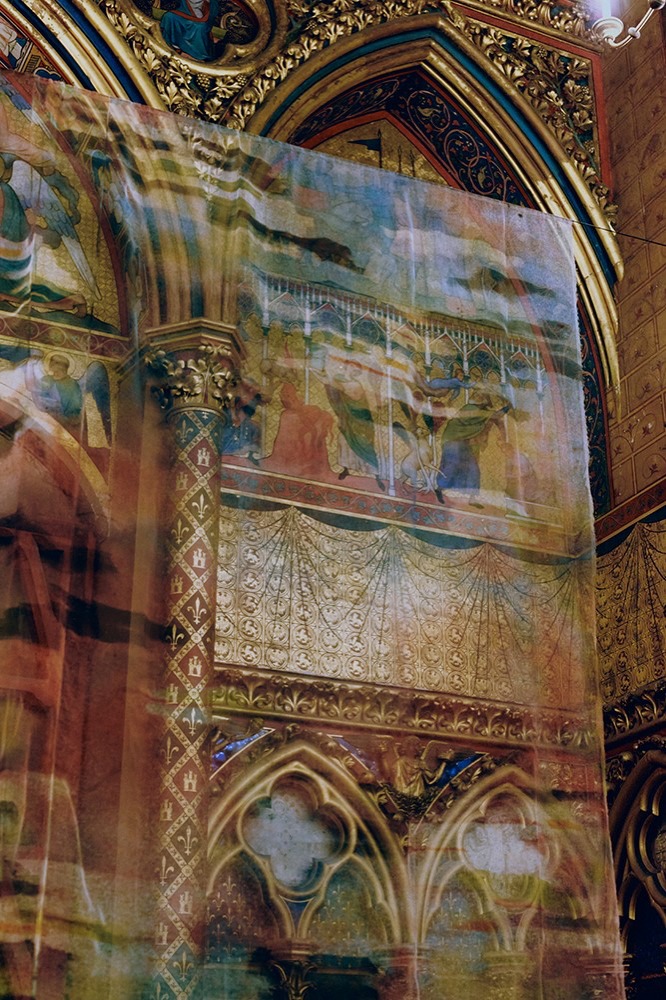
- Participants
- Vir Andres Hera
- Victor Barabino
- Dario Biancullo
- Raphaël Bories
- Patrick Boucheron
- Elise Haddad
- Amalia Laurent
- Adrian Paci
- Study days organized by
- Clovis Maillet
- Nicolas Sarzeaud
On the occasion of the exhibition Shared Holy Places exhibition at Villa Médicis, Clovis Maillet and Nicolas Sarzeaud, residents at Villa Médicis from 2024-2025, have devised two study days designed to highlight the sharing of narratives between different cultural spheres.
These days will focus on the Christian story: as the bearer of a universal vocation, the Church has sought to spread its message as widely as possible. This desire for expansion has led to forms of cultural hybridization – sometimes controlled, often unforeseen – that still nourish contemporary creation today.
By combining scientific research and artistic practices, these meetings offer a journey through a Christianity in transformation, at the crossroads of multiple influences.
November 13 study day
Thursday, 13 November, 2:30 p.m. – 5:00 p.m.
2:30 p.m. Introduction (Clovis Maillet and Nicolas Sarzeaud)
2:45 p.m. Raphaël Bories (curator at Mucem, co-curator of the exhibition) x Alessandro Gallicchio (director of the art history department at Villa Medici) on Christian legends of architectural and pictorial journeys from the Balkans to Italy (Loreto, Genazzano)
Screening of Adrian Paci’s film pilgrImage
Discussion with Alessandro Gallicchio
Lecture by Raphaël Bories3:45 p.m. – 4:00 p.m. Break
4:00 p.m. Discussion Elise Haddad (EHESS-CRH) x Vir Andres Hera (artist) on the hybridisation of Christian narratives in the context of the colonisation of Mexico
4:45 p.m. Closing speech
6:00 p.m. Screening of Andrea Fortis’ film Femmenell (2024) 73′ followed by a discussion with the director
November 14 study day
Friday, 14 November, 3:00 p.m. – 8:00 p.m.
3:00 p.m. Introduction by Clovis Maillet and Nicolas Sarzeaud
3:15 p.m. Lecture by Victor Barabino (University of Lorraine) on the links between mythology and hagiography in the medieval Scandinavian world
3:45 p.m. Discussion with Clovis Maillet and Dario Biancullo on the sexual difference liberation movement and the rituals of the Femminielle linked to the Virgin of Montevergine (Campania)
6:00 p.m. Discussion between Patrick Boucheron (Collège de France) and Amalia Laurent (artist) on the appropriation of ritual sites by contemporary art, based on the example of her performance at the Sainte-Chapelle
Biographies
Nicolas Sarzeaud
Nicolas Sarzeaud is an FRS-FNRS research fellow at the Catholic University of Louvain. A graduate of the École du Louvre, in 2021 he defended a thesis at EHESS on the cult of the Shrouds of Christ between the 14th and 16th centuries, published by Cerf in 2024 under the title Les Suaires du Christ en Occident (The Shrouds of Christ in the West) (Provins Prize 2025). A former resident of the Villa Medici, he has taught at Lumière Lyon II University and the University of Lorraine and published numerous articles on the cult of images in the late Middle Ages and how they were displayed, viewed, and disseminated through the intensive production of copies.
Clovis Maillet
Clovis Maillet is a medieval historian and artist. A specialist in issues of gender and kinship in medieval visual culture, he is the author of La parenté hagiographique (2014), Les genres fluides. De Jeanne d’Arc aux saintes trans (2020), Un Moyen Âge émancipateur (2021), and Écotransféminismes (with E. Bigé, 2025) . Since the early 2000s, he has been developing an artistic practice combining performance, installation, and film. He also co-wrote the show Medieval Crack with the Foulles collective.
Victor Barabino
Victor Barabino is an assistant professor of ancient and medieval history at the University of Lorraine. After completing his thesis at the University of Caen Normandy, he devoted his research to the interactions between religious and military culture in medieval Scandinavia.
Vir Andres Hera
Vir Andres Hera is an artist whose practice unfolds through multi-channel film installations, sound compositions, performances, and critical writings. His work explores the intertwined dynamics of diasporic consciousness, exile, gender identity, and memory through a radically deconstructed cinematic language. Formally rooted in expanded cinema, his approach challenges linear narrative structures by embracing fragmentation, superimposition, multilingualism, and temporal disjunction.
Drawing on collective and personal archives, she assembles audiovisual montages that destabilize hegemonic narratives while highlighting marginalized voices. Her works often emerge as poetic assemblages where the visual, textual, and sonic coexist in affective spaces of resonance. They articulate queer, Chicana, and Afrodiasporic epistemologies and challenge colonial frameworks embedded in visual culture. His artistic practice resists closure and embraces multiplicity, creating constellations of images, gestures, and languages that reconfigure the experience of time, voice, and identity.
A graduate of Le Fresnoy, Mo.Co. Montpellier, and UQAM in Montreal, Vir Andres Hera has been in residence at Casa de Velázquez (2015-16), Triangle-Astérides (2021), Breaking Bread, Cape Town (2023), and Salzburger Kunstverein (2024), among others. His work has been presented internationally, notably at the Haus der Kulturen der Welt, the Gaîté Lyrique, Mimosa House London, and Luma Foundation Westbau. His installation Amoxtli recently received the Jeune Création Internationale award at the Lyon Biennale, and in the same year the Centre Pompidou dedicated an evening retrospective to him.
In 2025, he was a finalist for the Prix Visio in Florence and was in residence at CIAPV Vassivière and the Carasso Foundation in Madrid. In 2026, he is preparing his next installation, Incwadi, and has been invited to the Juan Soriano Museum (MX), STUK Leuven (BE), and the Art Gallery of New South Wales, Sydney (AU) for a major exhibition on indigenous diasporas. He directed the master’s program at the École Expérimentale d’Annecy-Alpes between 2021 and 2025 and joined the teaching team at Villa Arson in 2025. He is also a member of the editorial board of Qalqalah قلقلة, a transdisciplinary research and translation platform.
Elise Haddad
Élise Haddad holds a doctorate in history and civilizations from EHESS in Paris. She initially worked on images from the European Middle Ages, particularly monumental and manuscript images of the Apocalypse, their iconography, and their social uses, before training in Mesoamerican languages and cultures, which now allows her to expand her corpus to include monumental images from New Spain in the early decades of the Conquest. She will present some of these images from the early 16th century during the study days at the Villa Medici. Created in mixed contexts, by Europeans or the first generation of indigenous people educated in missionary schools, for Europeans or the very first indigenous converts to Christianity, they bear witness to the encounter, the clash, and the strategies implemented to reconcile two visual cultures and multiple affiliations.
Dario Biancullo
Dario Biancullo (1986) is a designer, activist, and multidisciplinary artist trained in
Forcella (NA) in the Naples area. He investigates and produces new and alternative social methods of queer and transfeminist denunciation and collective/community self-determination for deviance with the aim of an intersectional practice of participatory, performative, and visual art with self-investigations: videos, environmental installations, aerosol art on fabrics, and poster displays in public and private spaces, galleries, theaters, foundations, and non-profit spaces. It traverses and denounces the world of fashion.
In collaboration with the founders of Atn (Trans Naples Association) and Afan (Antiche Femminelle Napoli) and important figures in ancient Neapolitan queer theater, it carries out activities of mutual recognition, archive sharing, and cross-pollination between the new and the old, folklore, the sacred, ritual, and dissident thought.
Anti-patriarchal thought is visualized together with his “queer” community.
Co-founder of an artistic organization—Korybass (derived from Coribanti)—which weaves a relationship of inclusivity in the Mediterranean region by combining tradition and new hyperstition of the possible and the real, producing militancy and vision, spirituality and sacred-queer blasphemy through meetings, talks, healing rituals, and participatory performance art.
Practical information
Thursday November 13
14h30 – 17h30
Cinema room at the Villa Medici
French & Italian
Friday November 14
15h00 – 20h00
Grand Salon of the Villa Medici
French & Italian
Free: online reservation
Free admission to the Shared Sacred Sites exhibition on 13 and 14 November upon presentation of a booking for the Translatio event.
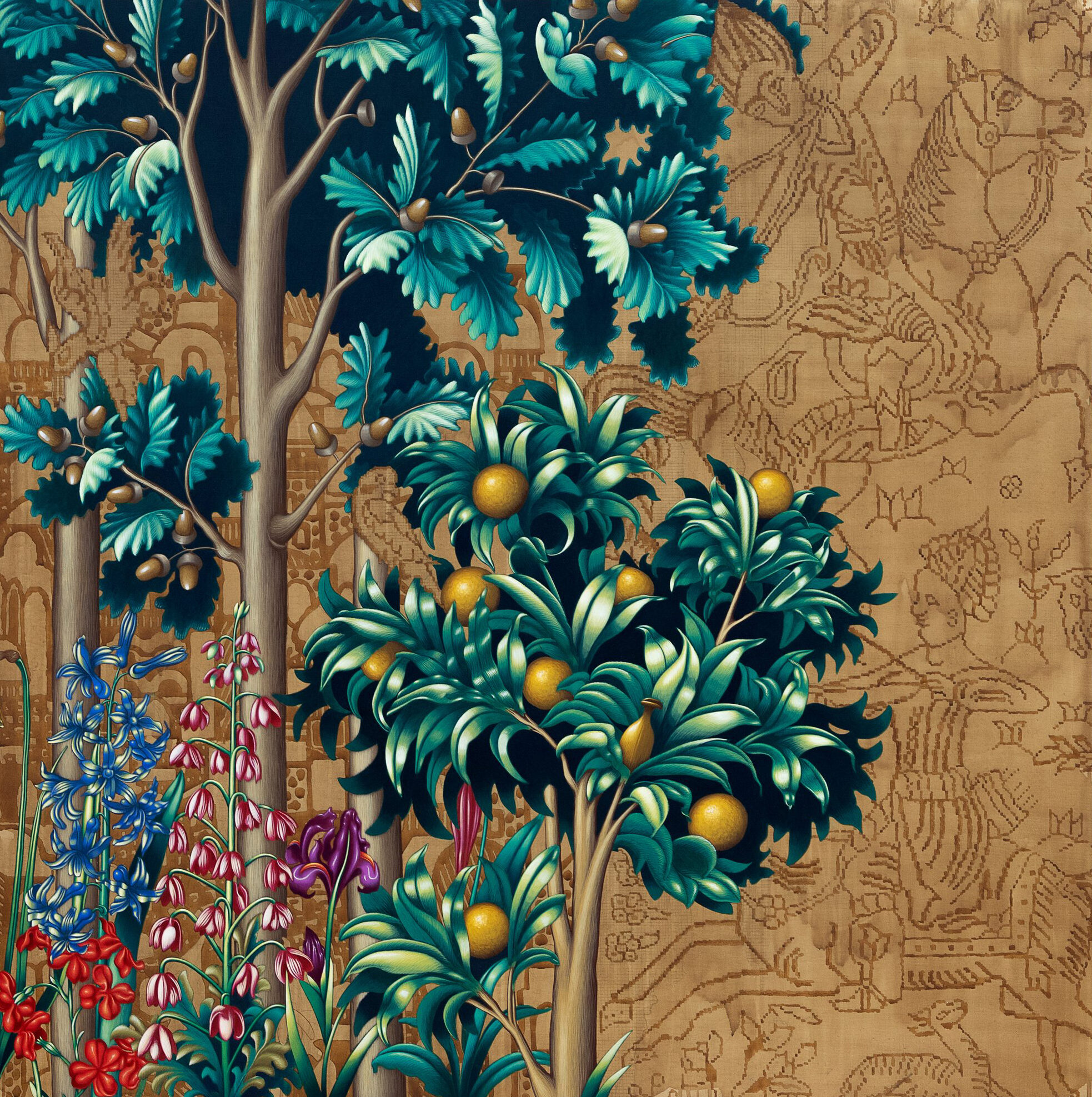
Shared Sacred Sites
09.10.2025 - 19.01.2026
- Curators :
- Dionigi Albera
- Raphaël Bories
- Manoël Pénicaud
